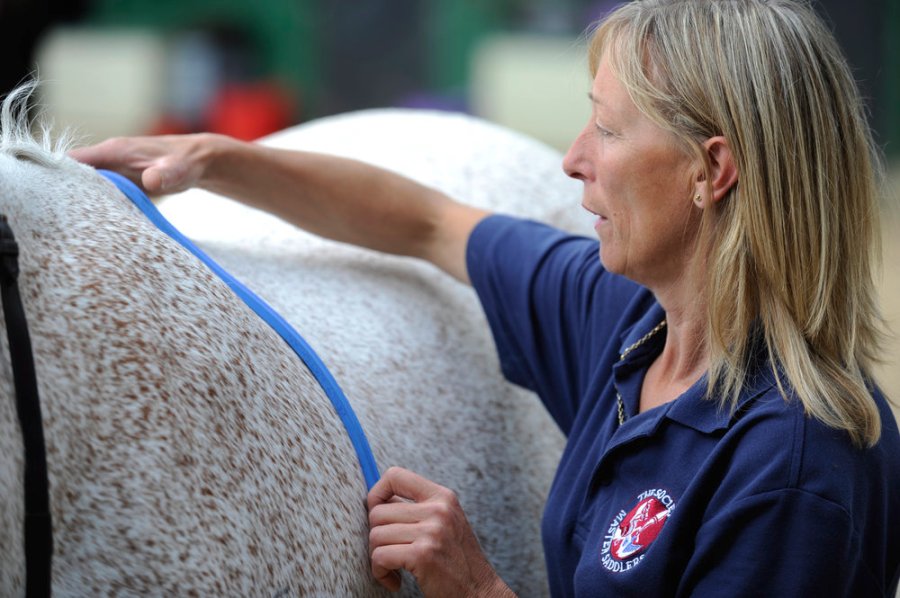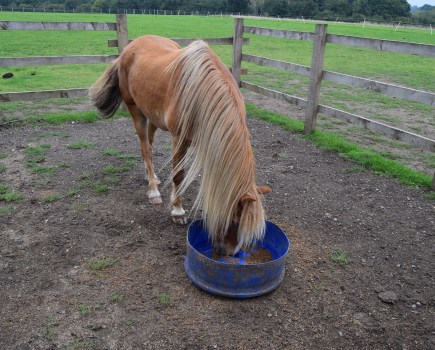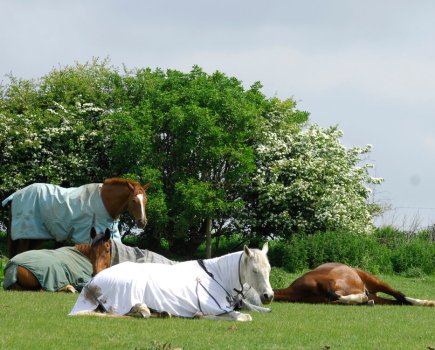Olivia Colton MSc, Senior Nutritionist at Feedmark, shares five top tips to help get your horse in shape for the summer.
In the wild, horses naturally lose weight over the winter. During the summer, when food is plentiful, they accumulate fat stores, which are used to sustain the horse over the colder months, when food is scarce.
In comparison to this, many of our horses are rugged, sheltered and given extra food over the winter – ideal for poor doers, but those carrying extra weight don’t naturally lose pounds in preparation for spring, which can lead to multiple issues such as lush grass growth leading to rapid weight gain.
The basic formula for weight loss is easy: your horse will need to burn more calories than they are consuming to drop the pounds. Here are a few tips to help your horse lose weight:
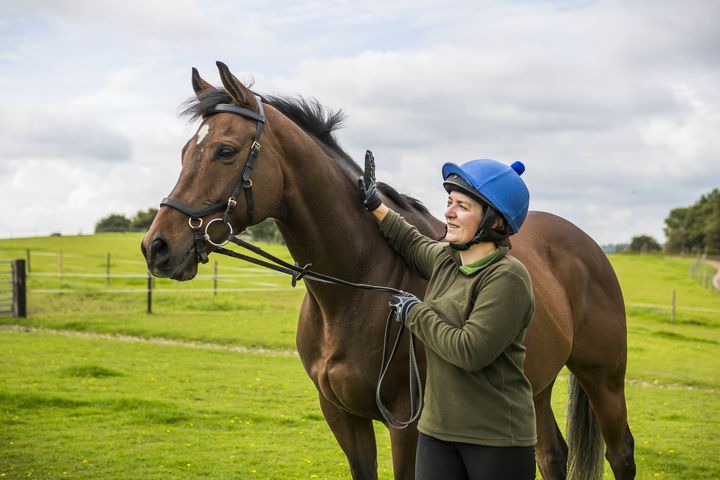 1. Get exercising
1. Get exercising
Even if your horse isn’t ridden, you can lunge, long rein, use horse walkers, track systems, or walk in-hand to help them burn a few calories.
Make sure you work in line with your horse’s current fitness level.
2. Reduce hard food intake
Slowly wean your horse off any unnecessary feed, instead feed pelleted vitamin and mineral supplements or balancers to provide your horse with the nutrients that they need to stay healthy.
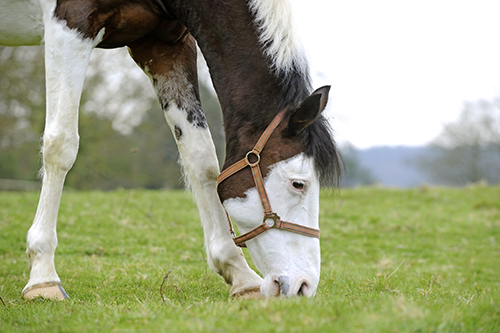 3. Restrict grazing
3. Restrict grazing
If your horse is out at grass it can be very difficult to know how much they are eating, some ponies could consume 5% of their own bodyweight per day!
To reduce grass intake, consider strip grazing, using sheep to munch down grass, or using a grazing muzzle, which have been shown to reduce grass intake by around 80%.
4. Look at forage
It’s recommended to have hay analysed to show the NSC levels (water soluble carbohydrate + starch) to see if it is suitable for your horse.
If this isn’t possible, soaking hay for between one and 12 hours reduces levels of NSCs, which leech out into the water.
If you do this, it’s particularly important to provide your horse with a vitamin and mineral source, as other nutrient levels also decrease with soaking.
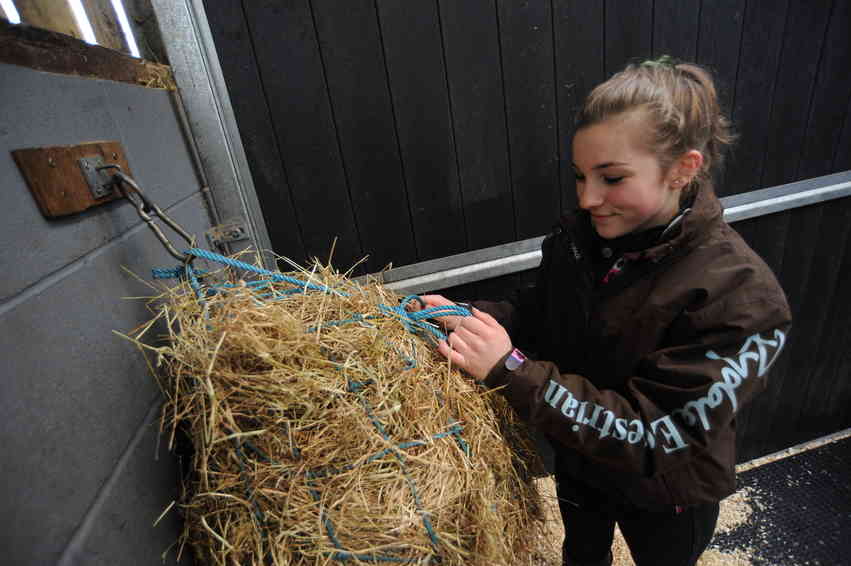 5. Don’t starve your horse
5. Don’t starve your horse
Horses are designed to trickle feed, and although it can seem like a good idea to withhold feed, they need some forage at least every few hours.
If you withhold feed it can lead to ulcers, colic, or hyperlipidaemia.

